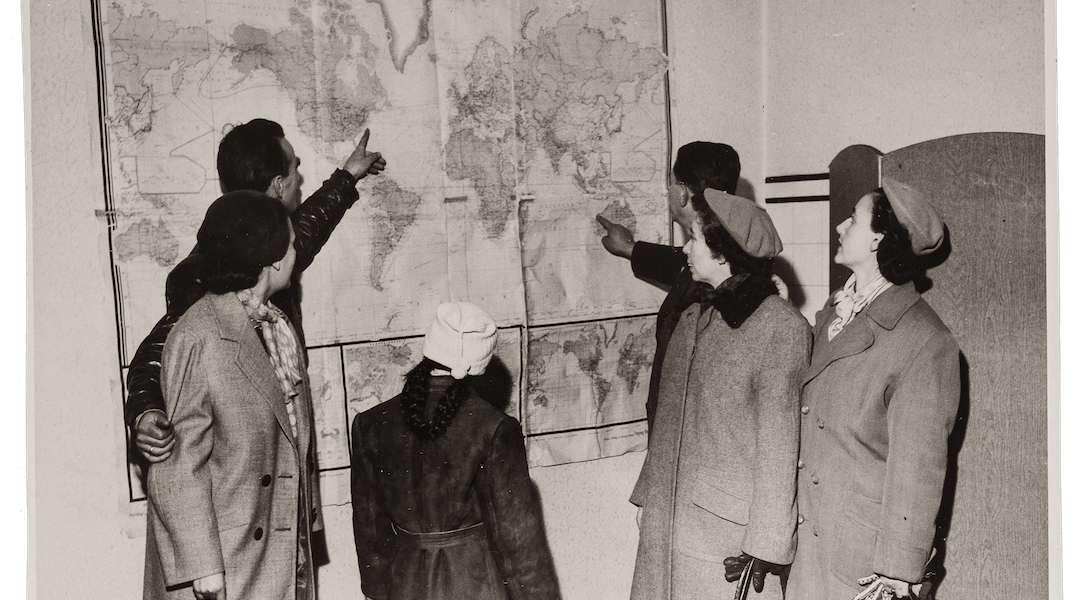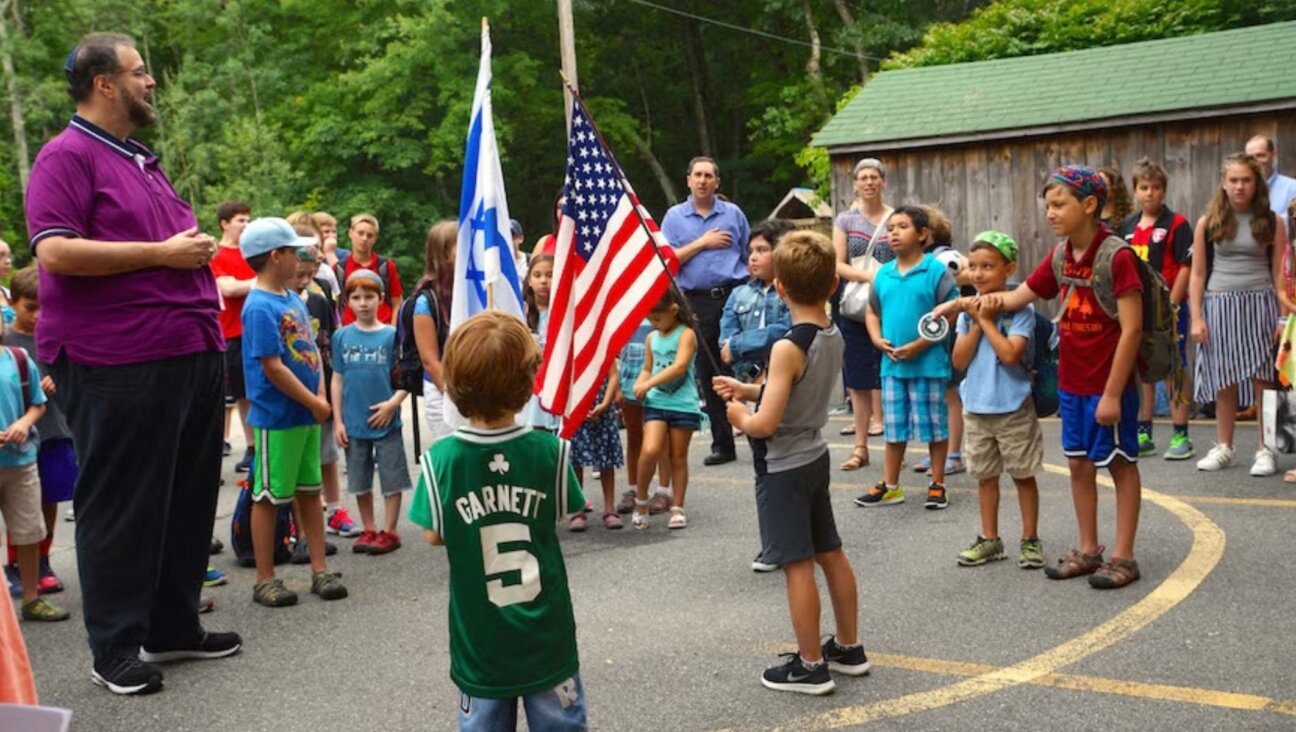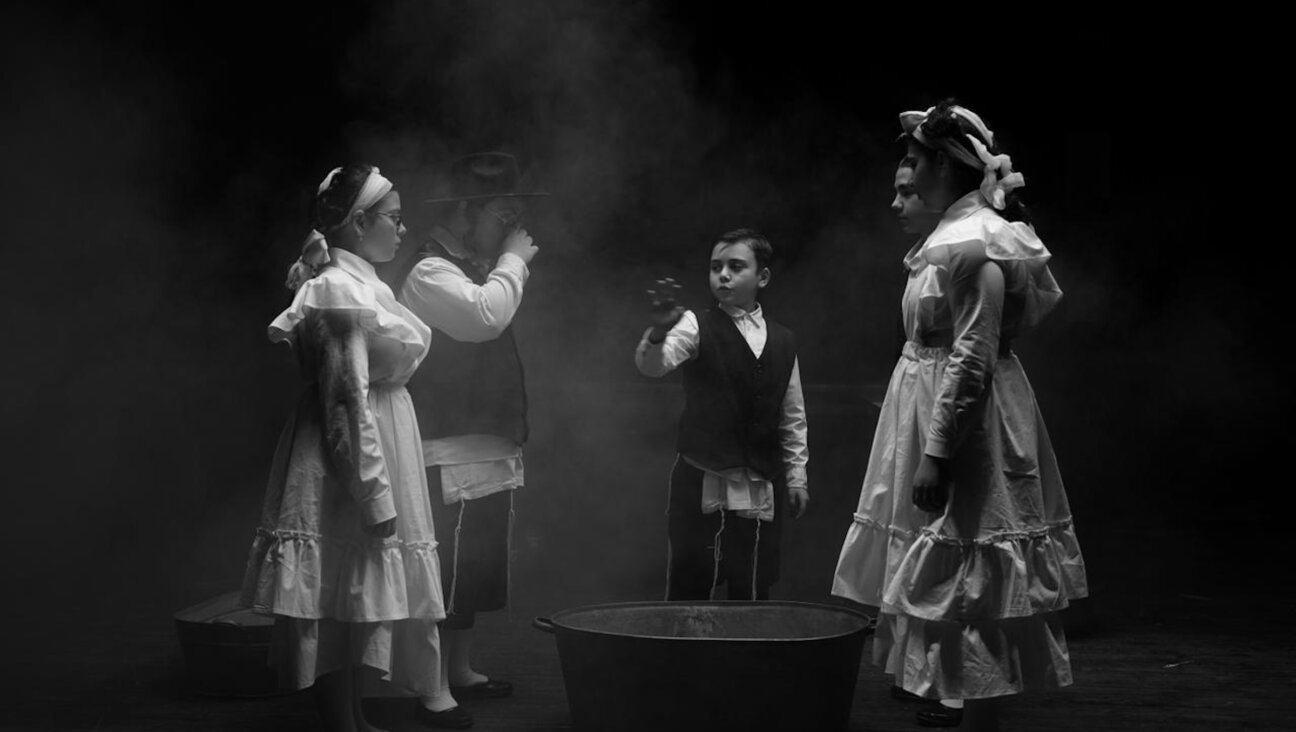Mormons Apologize for Wiesenthal Baptism
The Mormon church has apologized for the posthumous baptism of the parents of Simon Wiesenthal.
A member of The Church of Jesus Christ of Latter-day Saints last month submitted the names of Wiesenthal’s parents for posthumous baptism, the Salt Lake Tribune reported. Wiesenthal was a Holocaust survivor who died in 2005; his mother was killed in the Nazi death camp Belzec in 1942.
Posthumous baptism, which is done by proxy, is also known as “baptism for the dead.” It allows members of the church to stand in for the deceased to offer them a chance to join the church in the afterlife.
In 2010, the church agreed after meetings with Jewish leaders to halt the proxy baptisms of Holocaust victims unless the names were submitted by their direct ancestors.
The church said Monday in a statement that it “sincerely regret[s] that the actions of an individual member … led to the inappropriate submission of these names,” which were “clearly against the policy of the church,” the newspaper reported.
Rabbi Abraham Cooper, the associate dean of the Simon Wiesenthal Center, participated in many of the high-level meetings between Jewish leaders and Mormon officials.
“We are outraged that such insensitive actions continue in the Mormon Temples,” he said in a statement on the organization’s website. “Such actions make a mockery of the many meetings with the top leadership of the Mormon Church dating back to 1995 that focused on the unwanted and unwarranted posthumous baptisms of Jewish victims of the Nazi Holocaust.”
Meanwhile, some members of the church have submitted the name of Holocaust survivor and author Elie Wiesel for proxy baptism, who is still living, the Huffington Post reported.
The submission was uncovered last Friday by Helen Radkey, a former Mormon who lives in Salt Lake City. Wiesel’s father, who died in the Holocaust, and his maternal grandfather also were proposed for proxy baptism, according to the report.
A church spokesman said Wiesel’s name was submitted for inclusion in the church’s massive genealogical database, not for baptism.














